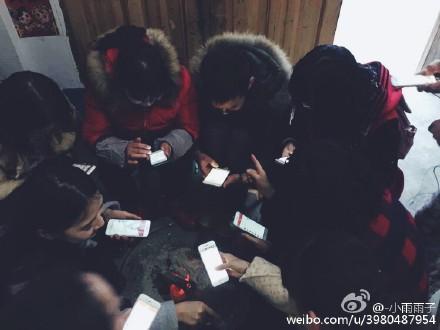Traditional red envelope packets of Chinese New Year money gifts have gone online, with 8 billion electronic envelopes sent this years via just one social media platform, WeChat.
WeChat and other Chinese social media sites also offered red envelope lotteries worth hundreds of millions of yuan split between millions of winners. According to Radio Free Asia, the events received over 300 billion interactions nationwide.

Sina Weibo





